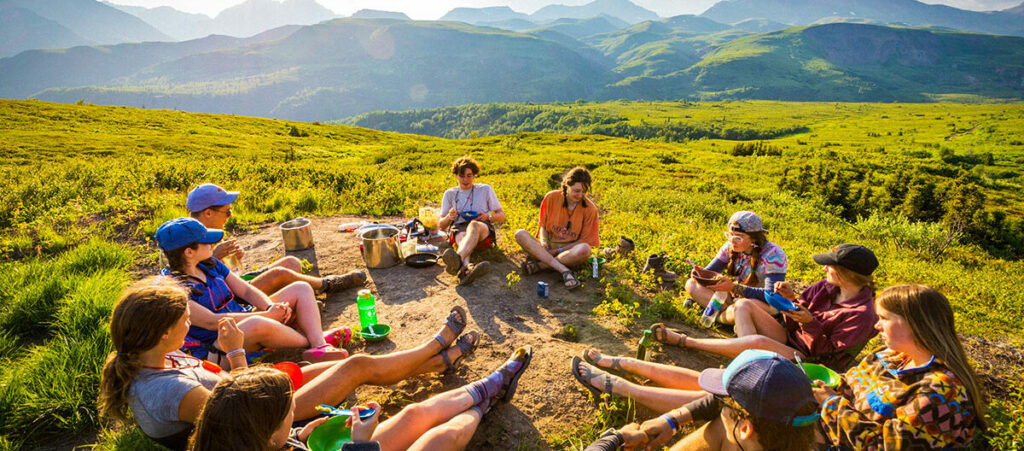Safety and Risk Management
This was one of the most amazing experiences for my child to be a part of. From start to finish, I felt the program had our best intentions at hand. They are super organized and amazing at answering questions in the beginning and keeping us informed throughout the trip. The information provided for first-time nervous parents was great! We felt very taken care of. The way that they organize the social aspect was perfect and my daughter also attested to that. It sounded like the physical and emotional challenge was respected for each child. It certainly was for our child. The safety of the trip was the highest priority. The fact that they use outside outfitters for the water and mountain summit trips is great. The instructors were all respectful and fun according to our daughter. She had a great time and made many friends. – Stephanie Brodsky, parent from Sacramento, CA
We know that sending your child away from home and to an outdoor adventure camp is usually more nerve-wracking for parents than for students. It can be stressful when you aren’t there to personally check things out.
Our students and instructors know that risk management is the foundation of everything that we do. The word “safety” is defined by Merriam-Webster as “the condition of being safe from undergoing or causing hurt, injury, or loss.” Safety can never be 100 percent guaranteed in the outdoors—or at home. (Statistically, students are less likely to get hurt at Adventure Treks than at home; for example, the incidence of injury with basketball or soccer are higher than with rock climbing.) That’s why we talk about risk management, or how we examine situations and identify hazards to reduce the potential for an undesired outcome.
To build independence and ensure normal teenage brain development, there has to be some element of risk. And from the moment your child leaves home until they return to you, minimizing risk is our first and foremost priority. As we consider ourselves partners in the parenting process, we make every decision as if you were looking over our shoulders. We have detailed policies and protocols for each activity and possible scenarios. By teaching students about judgment, probability, and consequences, we build a risk management–conscious “expedition mentality” within the community that helps students understand the “why” behind our policies. We help our students learn to make good decisions and to take intelligent, reasonable risks—habits that will apply for the rest of their lives.
Safety at Adventure Treks begins with experienced trip leaders and regional directors. Our leadership team facilitates an extensive 14- to 21-day instructor training where we review procedures and set the tone for a safe, fun summer. We are proud to say that in 30 years, we have safely worked with more than 20,000 students.
Nate’s experience with his adventure exceeded our expectations tenfold. He was able to find himself by taking a chance on being more extroverted and making connections with people that he had never done before in his life. He opened up to people and put himself out there and realized that he could make friends and develop relationships without getting hurt. The most valuable experience for Nate was bonding with kids his age and finding connection with people. Removing electronics and giving him the opportunity to talk about himself and learning about others was huge for him. And communication was fantastic, incredibly organized, and complete. – Jenny Fisher, parent from Tampa, FL
Expedition mentality
Strong, close-knit, and inclusive communities develop when there is a sense of mutual respect among all members. Our instructors empower our students to create a culture of kindness in their group, and to be as concerned about the well-being of the community as they are for themselves. We help students understand that a good community includes both physical and emotional safety, and they’ll discover how one’s actions can impact the group. We encourage students to have fun, challenge themselves, be willing to try new things, volunteer for tasks, do more than their fair share, and maintain a positive mental attitude no matter the circumstances. This expedition mentality is a core value of the Adventure Treks experience.
